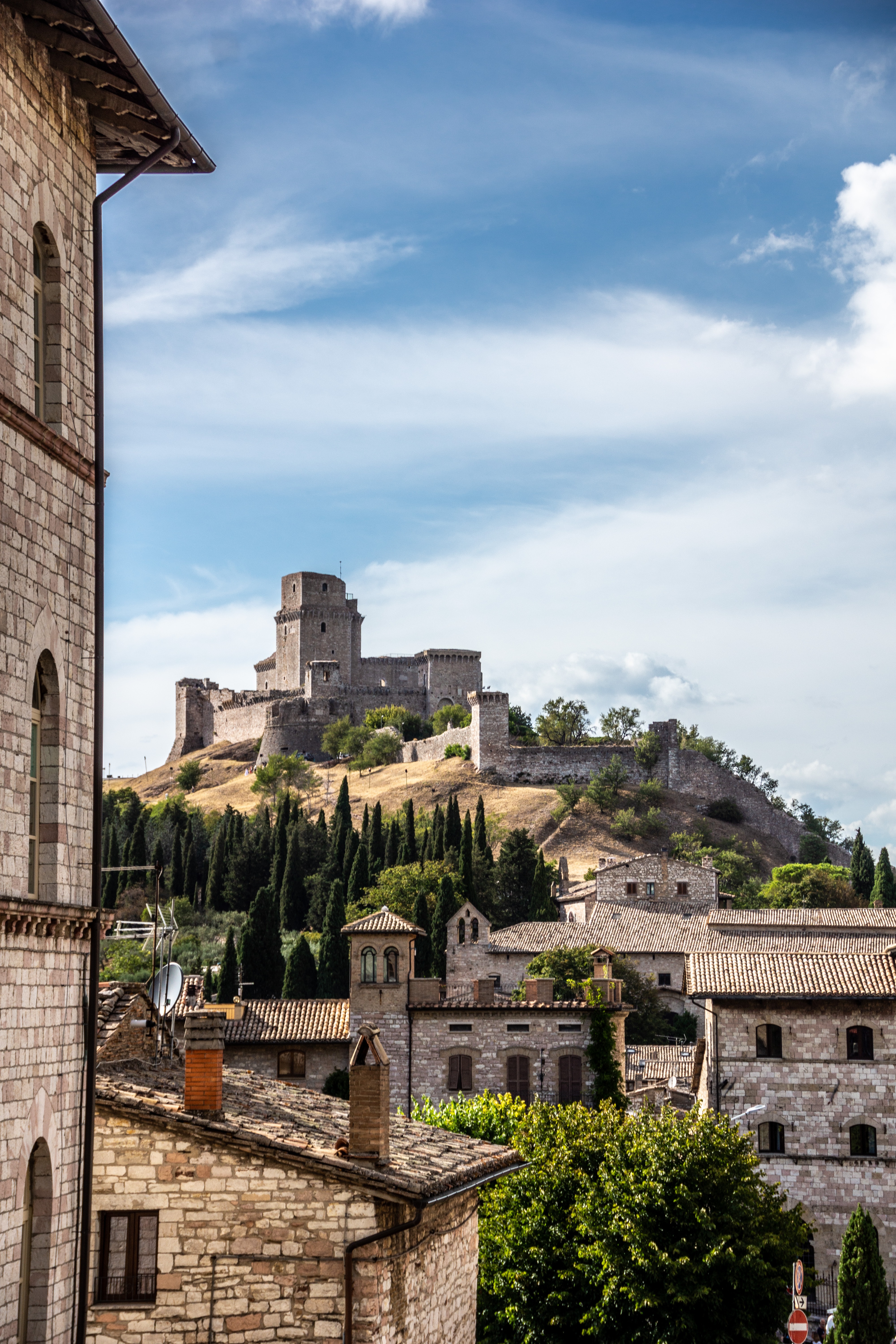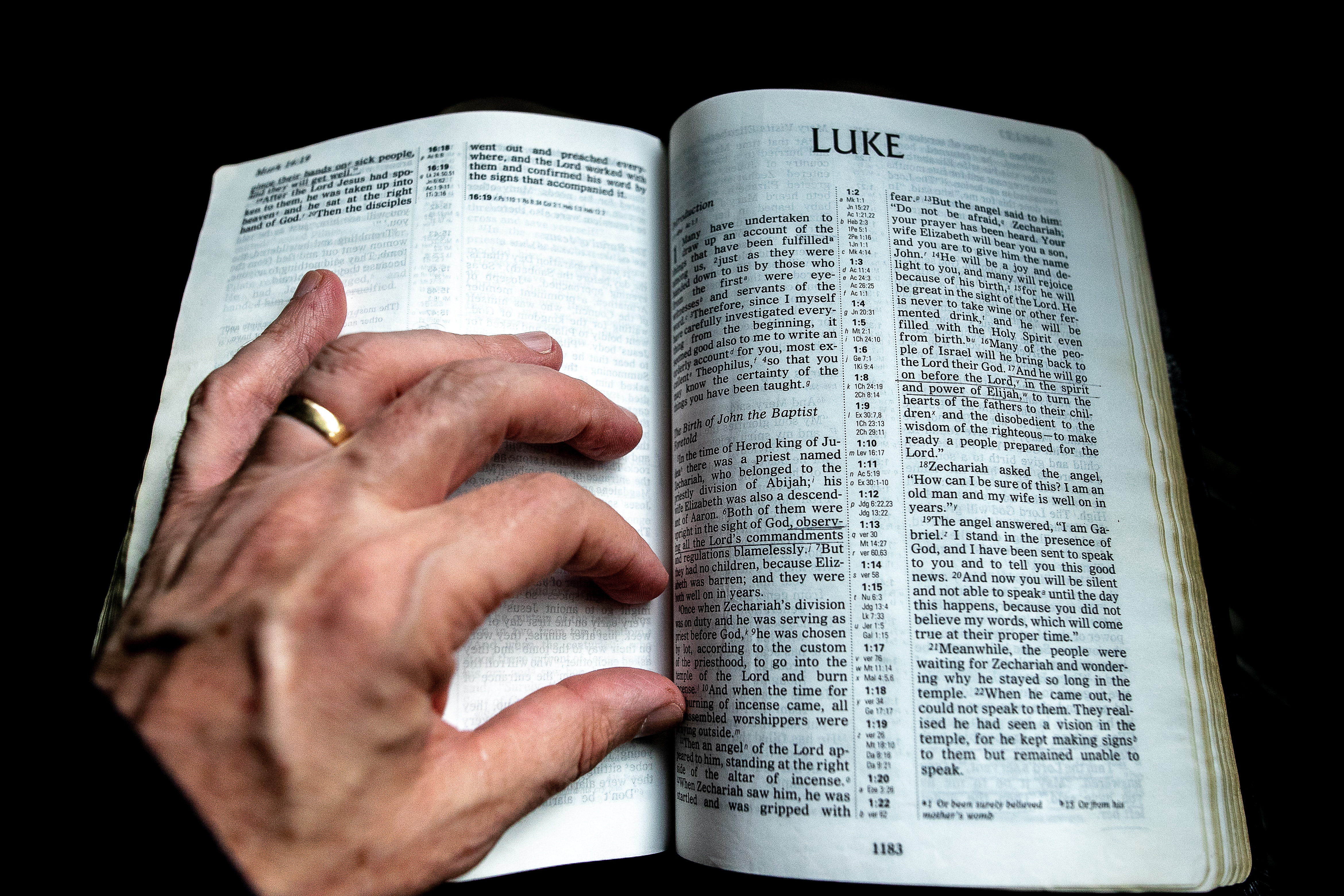The Feast of St. Jude has always been one of my favorite days. Not only did I grow up in St. Jude Parish and attend elementary school there, I also feel the need to invoke his name with certain frequency. Because life seems to throw us our fair share of seemingly impossible cases, doesn’t it?
Several months back our family went through such a time. I very unexpectedly lost my job. Being the sole breadwinner for our family of seven, it seemed that life as we knew it was coming to an end. I mean, we were just barely getting by as it was, how were we supposed to make ends meet with even less income? Where was God in all this?
Turns out, He was just about everywhere. After my tears were dried and my shock began to wear off, I immediately put the word out to family and friends. Not only did some of them send generous gifts, but others offered me side jobs or more hours at what I was already doing. Leads and suggestions began to pour in from concerned acquaintances.
But God had even more in store than simply helping me find employment. He had some work to do in my soul. By allowing me more time for prayer, I was able to dig deeply into some dusty corners of my interior and sweep out the cobwebs. I have to admit, some days it felt like He was giving me a darn good spanking! But I realized some mistakes I had made and some behaviors that needed changing. In the end, all I could do was thank Him for His gifts and blessings!
Just as in today’s Gospel Jesus went up to the mountain to pray and then chose His disciples, I felt like I was being asked to come away in prayer and then being called to something greater. Not just a job to help us survive, but a mission to help us thrive.
Our first reading states “…Christ Jesus himself [i]s the capstone. Through him the whole structure is held together and grows into a temple sacred in the Lord; in him you also are being built together into a dwelling place of God in the Spirit.” That’s exactly what I had been missing! I was trying to build up the structure of my family’s well-being based on my own strength and we were crumbling to pieces! I forgot something so central to our existence. Jesus himself is the cornerstone.
What is it you are going through today? Do you feel like you are experiencing a situation that is seemingly impossible? Do you need a gentle reminder that God is at the center and in the midst of it all? Let us invoke today’s patron saint and take heart, for “God is even closer to us than we are to ourselves” (source unknown).
La Fiesta de San Judas siempre ha sido uno de mis días favoritos. No sólo crecí en la parroquia de San Judas y asistí a la escuela primaria allí, también siento la necesidad de invocar su nombre con cierta frecuencia. Porque la vida parece lanzarnos una buena cantidad de casos aparentemente imposibles, ¿verdad?
Hace varios meses nuestra familia pasó por un momento así. Perdí mi trabajo muy inesperadamente. Siendo la única que mantenía económicamente a nuestra familia de siete personas, parecía que la vida tal como la conocíamos estaba llegando a su fin. O sea, ya estábamos con las ajustas y ¿cómo se suponía que íbamos a pagar los gastos con aún menos ingresos? ¿Dónde se encontraba Dios en todo esto?
Resulta que se encontraba en todas partes. Después de que mis lágrimas se secaron y mi conmoción comenzó a desaparecer, inmediatamente pasé la voz a familiares y amigos. Algunos de ellos me enviaron donativos generosos, otros me ofrecieron trabajos secundarios o más horas en lo que ya estaba haciendo. Empezaron a llegar posibilidades de trabajo y sugerencias de conocidos preocupados.
Pero Dios tenía reservado aún más que simplemente ayudarme a encontrar empleo. Tenía que hacer algo en mi alma. Al permitirme más tiempo para la oración, pude escarbar profundamente en algunos rincones polvorientos de mi interior y barrer las telarañas. ¡Tengo que admitir que algunos días sentí que me estaba dando una buena paliza! Pero me di cuenta de algunos errores que había cometido y algunos comportamientos que necesitaban cambiar. Al final, ¡lo único que pude hacer fue agradecerle por sus dones y bendiciones!
Así como en el Evangelio de hoy, Jesús subió a la montaña para orar y luego eligió a sus discípulos, sentí que me pedía que saliera a orar y luego me llamaba a algo más grande. No solo un trabajo para ayudarnos a sobrevivir, sino una misión para ayudarnos a prosperar.
Nuestra primera lectura dice: “…Cristo Jesús [es] la piedra angular. Sobre Cristo, todo el edificio se va levantando bien estructurado, para formar el templo santo del Señor, y unidos a él también ustedes se van incorporando al edificio, por medio del Espíritu Santo, para ser morada de Dios.” ¡Eso es exactamente lo que no entendía! ¡Estaba intentando construir la estructura del bienestar de mi familia basada en mi propia fuerza y nos estábamos ahogando! Me olvidé de algo tan central a nuestra existencia. Jesús mismo es la piedra angular.
¿Por qué tipo de momento estás pasando hoy día? ¿Sientes que estás dentro de una situación que parece imposible? ¿Necesitas un recordatorio de que Dios está en el centro y en medio de todo? Invoquemos al santo patrón de hoy y nos alentamos, porque “Dios está aún más cerca de nosotros que nosotros mismos” (fuente desconocida).
Feature Image Credit: dodo71, pixabay.com/photos/stained-glass-window-church-4576516
 Tami Urcia grew up in Western Michigan, a middle child in a large Catholic family. She spent early young adulthood as a missionary in Mexico, studying theology and philosophy, then worked and traveled extensively before finishing her Bachelor’s Degree in Western Kentucky. She loves tackling projects, finding fun ways to keep her little ones occupied, quiet conversation with the hubby and finding unique ways to love. She works full time, is a guest blogger on CatholicMom.com and BlessedIsShe.net, and has been doing Spanish translations on the side for over 20 years.
Tami Urcia grew up in Western Michigan, a middle child in a large Catholic family. She spent early young adulthood as a missionary in Mexico, studying theology and philosophy, then worked and traveled extensively before finishing her Bachelor’s Degree in Western Kentucky. She loves tackling projects, finding fun ways to keep her little ones occupied, quiet conversation with the hubby and finding unique ways to love. She works full time, is a guest blogger on CatholicMom.com and BlessedIsShe.net, and has been doing Spanish translations on the side for over 20 years.


 Deacon Dan Schneider is a retired general manager of industrial distributors. He and his wife Vicki have been married for over 50 years. They are the parents of eight children and thirty grandchildren. He has a degree in Family Life Education from Spring Arbor University. He was ordained a Permanent Deacon in 2002. He has a passion for working with engaged and married couples and his main ministry has been preparing couples for marriage.
Deacon Dan Schneider is a retired general manager of industrial distributors. He and his wife Vicki have been married for over 50 years. They are the parents of eight children and thirty grandchildren. He has a degree in Family Life Education from Spring Arbor University. He was ordained a Permanent Deacon in 2002. He has a passion for working with engaged and married couples and his main ministry has been preparing couples for marriage.




 David Dashiell is a freelance author and editor in Nashville, Tennessee. He has a master’s degree in theology from Franciscan University, and is the editor of the anthology
David Dashiell is a freelance author and editor in Nashville, Tennessee. He has a master’s degree in theology from Franciscan University, and is the editor of the anthology 


 Dr. Alexis Dallara-Marsh is a board-certified neurologist who practices in Bergen County, NJ. She is a wife to her best friend, Akeem, and a mother of two little ones on Earth and two others in heaven above.
Dr. Alexis Dallara-Marsh is a board-certified neurologist who practices in Bergen County, NJ. She is a wife to her best friend, Akeem, and a mother of two little ones on Earth and two others in heaven above.
 Elizabeth Tomlin is the author of Joyful Momentum: Building and Sustaining Vibrant Women’s Groups and contributing author to the Ave Prayer Book for Catholic Mothers. She is General Counsel for the Archdiocese for the Military Services, USA. Elizabeth is an Army wife and mother of three and currently lives in the DC area. She blogs at
Elizabeth Tomlin is the author of Joyful Momentum: Building and Sustaining Vibrant Women’s Groups and contributing author to the Ave Prayer Book for Catholic Mothers. She is General Counsel for the Archdiocese for the Military Services, USA. Elizabeth is an Army wife and mother of three and currently lives in the DC area. She blogs at 


 A lover of Jesus Christ, a wife, and a mother of five, Christine is the author of Everyday Heroism: 28 Daily Reflections on the Little Way of Motherhood. She is a graduate of Franciscan University, an instructor for the Institute for Excellence in Writing, and an experienced catechist. Thrilled to have recently become grandparents, she and her husband currently live in Upstate, NY. Visit her author webpage at
A lover of Jesus Christ, a wife, and a mother of five, Christine is the author of Everyday Heroism: 28 Daily Reflections on the Little Way of Motherhood. She is a graduate of Franciscan University, an instructor for the Institute for Excellence in Writing, and an experienced catechist. Thrilled to have recently become grandparents, she and her husband currently live in Upstate, NY. Visit her author webpage at 
 Mike Karpus is a regular guy. He grew up in Michigan’s Upper Peninsula, graduated from Michigan State University and works as an editor. He is married to a Catholic school principal, raised two daughters who became Catholic school teachers at points in their careers, and now relishes his two grandchildren, including the older one who is fascinated with learning about his faith. He also has served on a Catholic school board, a pastoral council and a parish stewardship committee. He currently is a lector at Mass, a Knight of Columbus, Adult Faith Formation Committee member and a board member of the local Habitat for Humanity organization. But mostly he’s a regular guy.
Mike Karpus is a regular guy. He grew up in Michigan’s Upper Peninsula, graduated from Michigan State University and works as an editor. He is married to a Catholic school principal, raised two daughters who became Catholic school teachers at points in their careers, and now relishes his two grandchildren, including the older one who is fascinated with learning about his faith. He also has served on a Catholic school board, a pastoral council and a parish stewardship committee. He currently is a lector at Mass, a Knight of Columbus, Adult Faith Formation Committee member and a board member of the local Habitat for Humanity organization. But mostly he’s a regular guy.
